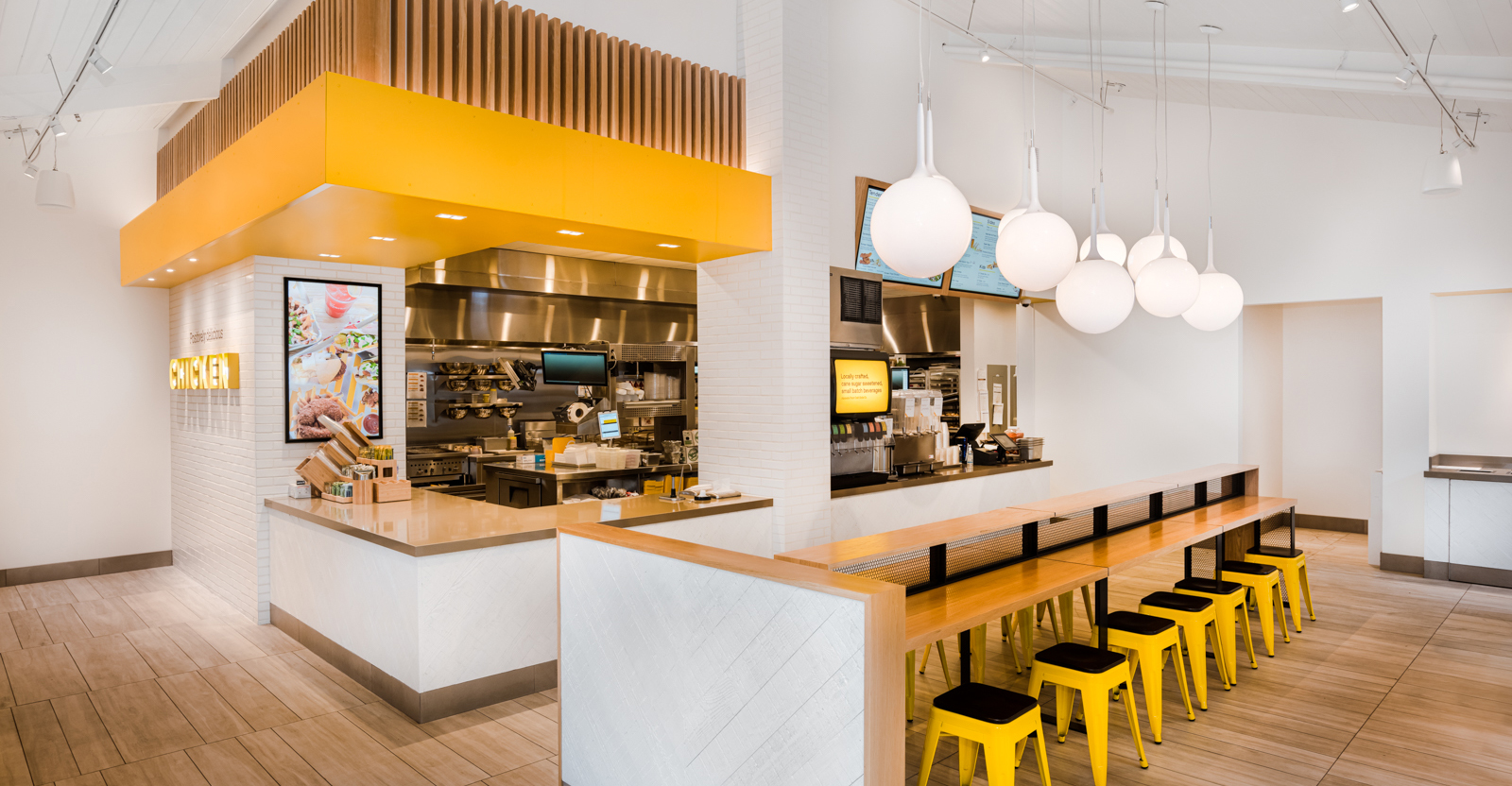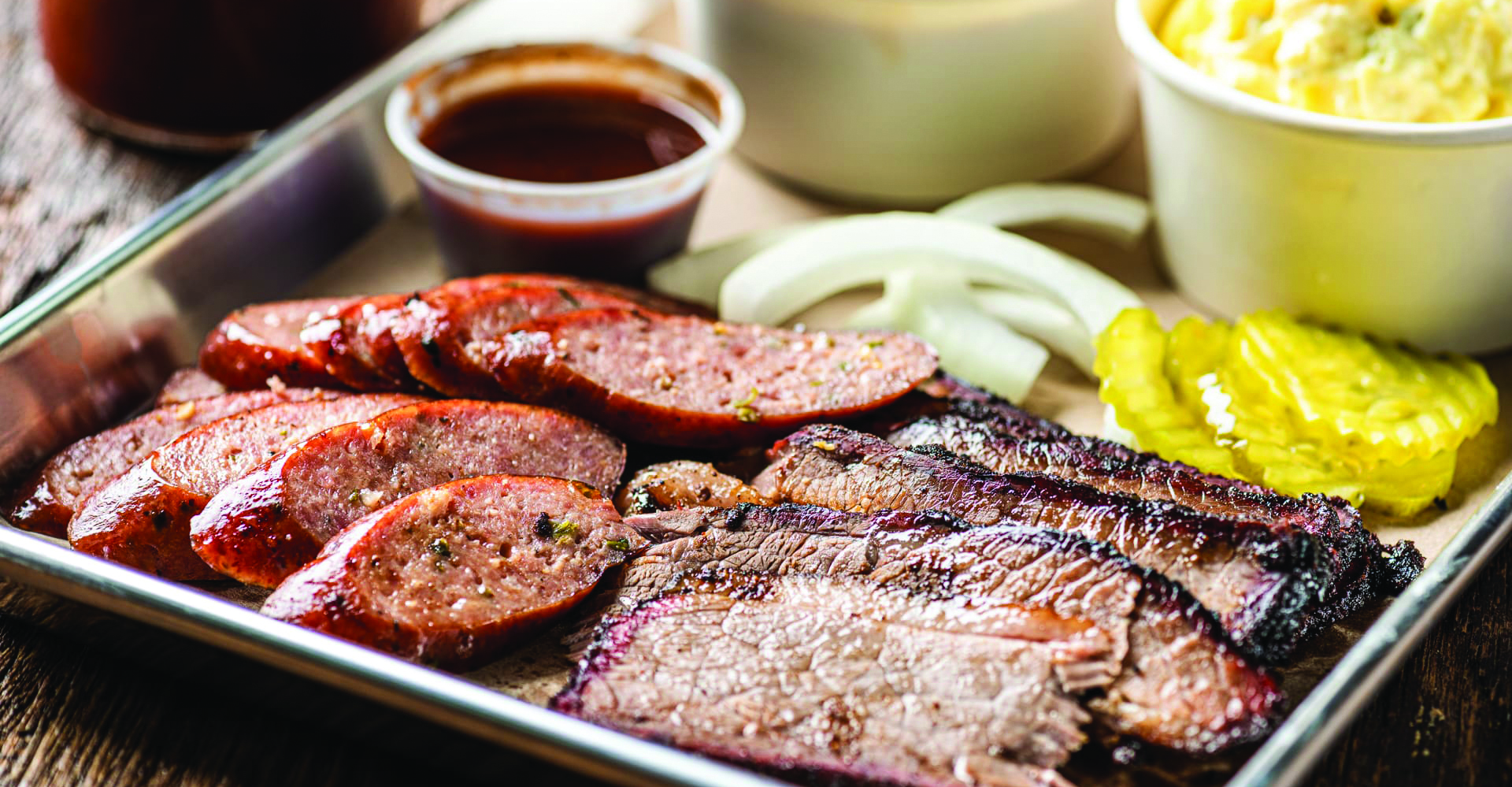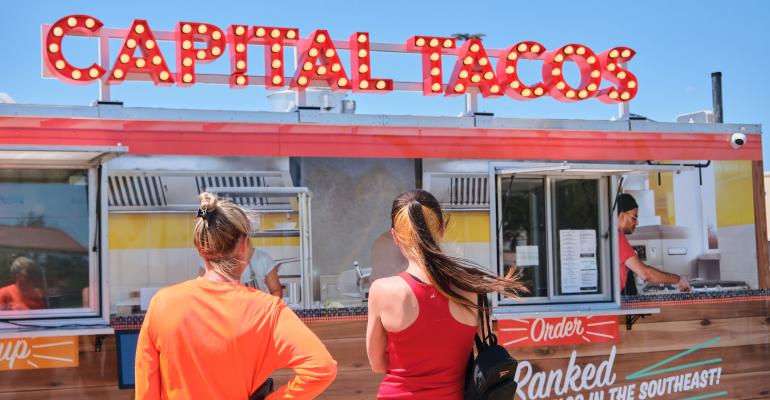As a new generation of emerging restaurant concepts starts to raise capital and scale operations, franchising often seems like the next logical step. But deciding to franchise is about more than just filing some paperwork and waiting for the applications (and added revenue) to come in.
Here are some tips, tricks, and real-life anecdotes from emerging franchisors and experts in the industry.
DO’S
Strengthen your business
The process of franchising usually begins years before you even touch a Franchise Disclosure Document. Getting all of your ducks in a row means making sure financials are strong, that you have a clear sense of brand, and that your supply chain and operational standards are squeaky-clean and up to date.
“A big thing for us was to make sure the Smokey Mo’s brand was clearly solidified,” said Leslie Smith, vice president of marketing at Smokey Mo’s BBQ. The barbecue chain underwent a rebrand last year and started aggressively growing through franchising in 2022. “We needed to make sure our business model and operations were supporting our goal of being the best neighborhood barbecue in Texas. … When we’re thinking about expanding to new partners or expanding our existing partners, we have to have a strong foundation to build from.”
For Courtney Cowan, co-owner of the budding, Los Angeles-based cookie business Milk Jar Cookies, making sure her singular store was a well-oiled machine before franchising was crucial to the success of future franchisees.
“Being able to put together a program that is going to allow your franchisees to find the same or even more success than you have is a huge part of franchising,” she said.
Get your timing right
Believe it or not, there is a right and wrong time to franchise, and it (mostly) comes down to financials.
“It really comes down to sales,” said Sherri Fishman, founder and co-CEO of Fishman PR and Franchise Elevator. “Track one or two corporate locations that are doing well for 12–18 months. Then you have to have solid operations and a solid training program that can be duplicated by someone else.”
Starbird, the quick-service chicken chain founded by members of chef consultancy The Culinary Edge, launched its national franchising program in 2022, and relied heavily on metrics and research to figure out the best timing for the 12-unit chain.
“We worked with some outside franchise experts to look at our brand and do a franchising analysis,” said CEO Aaron Noveshen. “Some of the most important metrics and questions are, ‘How does the brand compete from a sales per-square-foot perspective?’ and ‘How do you differentiate?’ ‘What are the unit sales to build-out cost ratio?’ and of course, ‘What is the return on investment?’ Once we checked those boxes, we felt we were ready to franchise.”

Starbird — the quick-service chicken chain founded by The Culinary Edge — launched its national franchising program in 2022.
Do your homework
Although perfecting your operations and figuring out the best timing for a franchise program is a great start, it is also crucial to have a plan for everything, including having a solid learning management system, developing a plan for attracting and hiring employees, identifying marketing goals, and differentiating between operating a new store and a more mature store.
It’s best to be prepared with answers to any and all questions that potential franchise developers or franchisees could ask.
“It's really important to have sales that you believe could be replicated, look at your supply chain, figure out if your concept could be successful in a smaller unit, [and] know who your competition is and what your differentiators are,” Fishman said. “Do your research. Go to conferences. Meet and learn from people.”
Know what type of franchisor you want to be
There are multiple routes for an emerging brand to take in franchising: You can attract experienced or first-time franchisees, and you can work with primarily larger franchise companies or individual mom-and-pop owners to expand your brand. For example, Noveshen and his team at Starbird are looking for experienced franchisees as they close in on the announcement of their first franchisees. But for Cowan, it was crucial to take on sole-ownership franchisees so they could work with owners individually and communicate with them easily.
“There’s something very special about going into an establishment that is owned by a human,” Cowan said. “You can feel the care and passion, and that resonates with a lot of people. … It’s crucial that every person who walks through the door of a Milk Jar Cookies is greeted personally. It’s part of our mission.”
Know your market and demographics
Part of doing your homework is identifying who your customer is and where they live (or would live in a potential market). For example, Smokey Mo’s very clearly knows its target franchisee is a multi-unit owner with experience in the Texas market, since the brand wants to continue to solidify its presence and compete with other barbecue chains in the Lone Star State. But other brands might be aiming for more general audiences.
“We opened more corporate stores to see if there was something about our brand that was unique or specific to a certain demographic, lifestyle, or commuter or suburbanite,” said James Marcus, cofounder of Capital Tacos, a Florida-based Tex-Mex taco chain that began franchising about 18 months ago and already has agreements for 25 franchised stores under its belt. “We became confident that there was nothing about what we were doing that was specific to a particular part of the country or type of customer or would be [a turn-off] to people who are not familiar with Tex-Mex. … Now we’re open in six different markets and, knock wood, we haven’t seen any difference between them or our home market.”
Identify your ideal franchisee
Identifying your ideal franchisee is about more than just deciding how experienced they should be or how large their company should be. It’s about finding a perfect match.
“You should create a franchisee profile,” said Prakash Karamchandani, cofounder and executive chef at Asian fast-casual chain Balance Grille. The concept just signed its first franchisees in March of this year. “Of course, you want them to live the brand, but what else should they bring to the table that isn’t about money? How many units do you want them to open? … Is it a good cultural fit? We’re basically going to be family with these guys for 10 years, so we want to have a great working relationship. … We wanted to make sure that we got people who are capable of building out five units on a defined timeframe.”
Market your brand
To make sure you partner with the best franchisees, you have to draw attention to your company. That starts with hiring a solid PR and marketing firm, and making sure that your online presence is eye-catching and up to date.
“Creating a one-stop-shop for franchise partners on your website where they can see all of the initial information they need to determine if it's the right relationship for them is crucial,” Smokey Mo’s Smith said. “Our website has interviews with current franchisees [and] information about our brand and is true to the way we talk to people and present ourselves. We’re candid, we’re transparent, and we’re friendly, and that’s what we try to display through our web presence.”

Smokey Mo's began franchising aggressively in 2022 and aims to become a household name in the barbecue sector.
DON’TS
Do it alone
Although this is an individual choice, many of the operators interviewed for this guide chose to hire a franchise development firm or franchise consultant to help get the next phase of their business off the ground. The extra cost can be a deterrent, but in the long-run, third parties can help franchisors get in touch with the right franchisees and open doors they did not know existed before.
“If you're good at running a restaurant, it’s highly unlikely that you’ll also be good at being a franchisor,” Capital Tacos’ Marcus said. “So, I feel like you need the help. … Franchise development firms are very selective because they can’t have clients in the same category. … It’s a big hurdle to get accepted, but then you’re seeing really qualified franchisee candidates coming to us. At Capital Tacos, we didn’t have to get good at that. We left it to the experts.”
Neglect your paperwork
Once you’ve done your homework, your corporate stores are running smoothly, and you know what you want in a franchisee, it’s time to prepare franchise disclosure documents, which is oftentimes the most tedious and lengthy part of the process, taking between two and four months, Fishman said.
“The whole key is to find the right franchise attorney,” she said. “It’s important to hire someone who understands franchising. Just do your homework and don’t just hire any lawyer, because you’ll spend a lot of money and waste your time.”
Be impatient
For the average first-time franchisor, setting up a franchising program can take about one year, so patience is key.
“From starting the franchise process, because you have to get a lawyer and get your documentation done, from the FDDs to training documents, it’s a long process,” Fishman said. “I would say you're really lucky if you do it under a year. You’re still trying to build corporate sales and figure out your leadership team and you’re working on new logos and web designs.”
Settle for inexperienced partners
Although some franchisors feel that they want to go the route of partnering with mom-and-pop independent franchisees, emerging franchisors don’t necessarily have to be “stuck” with inexperienced franchisees. There are many reasons why an emerging concept with under 25 locations would be desirable to an experienced franchisee with several concepts in its portfolio, including a desire to branch out to new smaller markets or explore unique foodservice categories.
“If they're already a successful franchisee, they're probably already in pizza, burgers, or sandwiches, and they're in these large, well-established chains,” Karamchandani said about Balance Grille’s decision to work mainly with established franchisees. “Then what they’re really looking for is diversification. The fact that we’re in fast-casual Asian where there's no clear market leader and very little competition is a plus. To an extent, it’s a lot of luck.”
Get stuck in limbo
It’s common for many young franchisors to announce a franchising program and then fail to get it off the ground because their concept was not as hot or competitive as they realized, or for other reasons.
“I think it's easy to announce, and it's harder to do right,” Marcus said. “A lot of folks just buy some Google ads and set up a Facebook page, and maybe get some good initial responses but they’re not super competitive. … It’s really easy to put out a press release, but harder to partner with a top-quality franchising firm that wants to take you on. What you have to do is slow down and test the waters before putting yourself out there.”
Take on too much
For some franchisors, the problem is not getting enough bites from potential franchisees, but for others, growing too quickly for the business to handle can be just as bad and lead to the concept burning out before it has the opportunity to flourish.
“While we were growing very quickly within the walls of our single unit store for many years, I wanted to take growth beyond that very slowly and methodically,” Cowan said. “I think first and foremost making sure that you have a high-quality product that you're proud of, and that can be adapted over time, is important. Knowing that at your current size and scale, your processes are as efficient as possible so that your franchisees can run as leanly as possible, is crucial.”
Abandon your franchisees
Finally, once you follow all of these steps and announce your first franchisee partnerships, remember that the relationship is just beginning. At Capital Tacos, Marcus said the team uses business analytics to help franchisees run more smoothly and measure performance both against the industry and their peers, coaching to help them get through challenges and rough spots.
“Franchisees need more support than you realize,” he said. “Your franchisees have likely mortgaged their homes and they've taken out big SBA loans, and they're taking a big risk to join your team and be part of your family. So, you owe it to them to do right by them. If you try to get cutesy and be too lean, if you’re not responsive enough or proactive enough, then it just won’t work.”
Contact Joanna Fantozzi at [email protected]





